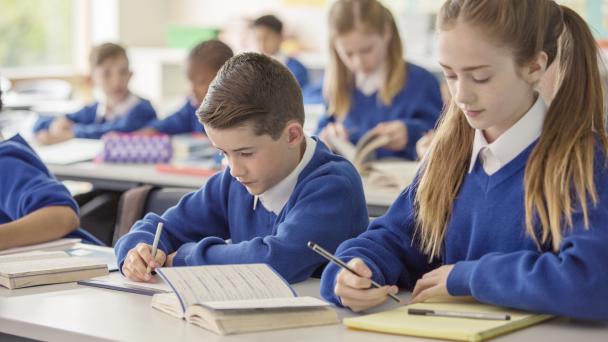Stop and Think: Learning Counterintuitive Concepts

The National Centre for Social Research (NatCen) will be carrying out two new and important longitudinal research studies, Five to Twelve and Growing Up in the 2020s. The studies, which are commissioned and funded by the Department for Education (DfE), take a closer look into educational disadvantages and inequalities in England over the next five years.
These two studies will be carried out concurrently, in collaboration with partner organisations the National Children’s Bureau (NCB) and the National Foundation for Educational Research (NFER).
Inequalities in education is a longstanding issue in England and has been exacerbated by the disruption to teaching and learning through COVID-19. Allowing all children and young people to thrive in school and achieve their potential is an important ambition for an economically successful nation. Research studies that analyse the various factors associated with contemporary educational disadvantage and inequality, through a post-pandemic lens, are not only valuable on a macro, societal level, but on a micro, family-centric one too.
A key aim of both studies is to collect data over time on pupils’ wellbeing, experiences, transitions, and outcomes at school. This data will help researchers and policymakers to further understand and improve educational inequalities experienced by children and their families across England. Areas of interest addressed in the studies include family life, digital engagement, special educational needs and disabilities (SEND), emotional and behavioural wellbeing and COVID-19.
Both studies invite up to three fathers, mothers, or parental carers of each child to take part in this research. As part of this project, data will be collected from the child’s household, as well as from co-resident and own household parents (legal or biological parents who live in a separate household from their child).
Teachers of participating children or young people will be invited to take part in the research by completing an online survey. In the secondary study, schools will also be asked to take part. Collecting professional opinions from teachers and schools will not only enhance data collected from pupils and parents, but also create a more holistic picture of how the school environment, ethos, and engagement with pupils and parents impact pupil’s behaviour and wellbeing.
Tina Haux, Director of NatCen’s Centre for Children & Families said: “Longitudinal studies such as these are crucial for understanding what matters to children’s progress. Insights gained through the data will provide a contemporary assessment of the different factors and mechanisms underpinning educational disadvantage and inequalities. Five to Twelve and Growing Up in the 2020s will help researchers and policymakers influence the development of schools, education and other support services for children and their families in the future.”
The Department for Education commented: “Primary and secondary school years are crucial periods in children and young people’s development, helping them to build strong foundations before entering adulthood.
“These studies will form an important part of our wider work to understand how a child’s education and environment affects their outcomes later in life, whilst also enabling us to improve education services and policies for future generations.”
For more information please contact:
Emileigh Spurdens, Communications Manager
t:020 7549 8506 e: emileigh.spurdens@natcen.ac.uk
Notes to editors:
Receive a regular update, sent directly to your inbox, with a summary of our current events, research, blogs and comment.
Subscribe